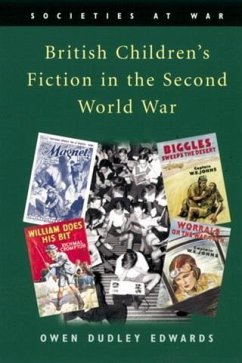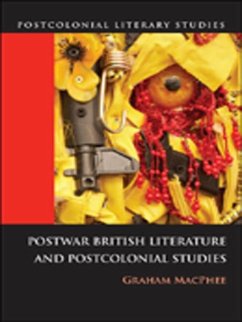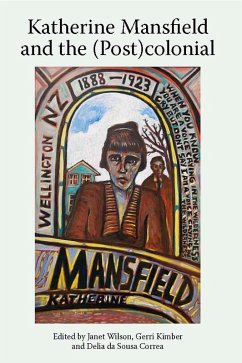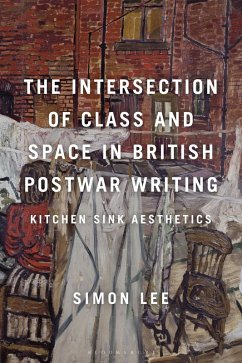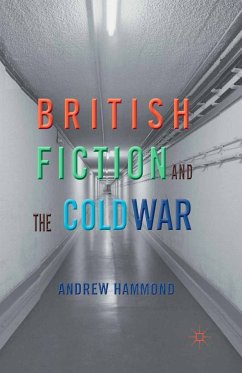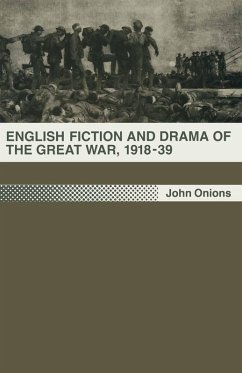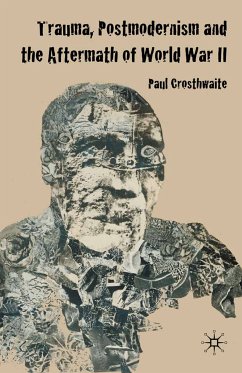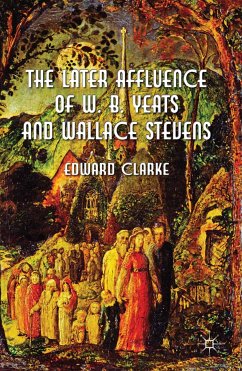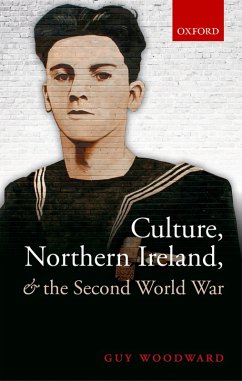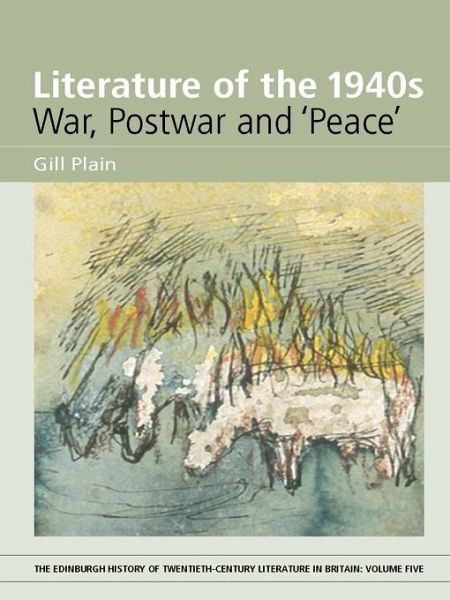
Literature of the 1940s: War, Postwar and 'Peace' (eBook, PDF)
Volume 5
Versandkostenfrei!
Sofort per Download lieferbar
0,00 €
inkl. MwSt.
Weitere Ausgaben:

PAYBACK Punkte
0 °P sammeln!
A groundbreaking re-reading of the literary response to a decade of trauma and transformationThis new study undoes the customary division of the 1940s into the Second World War and after. Instead, it focuses on the thematic preoccupations that emerged from writers' immersion in and resistance to the conflict. Through seven chapters - Documenting, Desiring, Killing, Escaping, Grieving, Adjusting and Atomizing - the book sets middlebrow and popular writers alongside residual modernists and new voices to reconstruct the literary landscape of the period. Detailed case studies of fiction, drama and...
A groundbreaking re-reading of the literary response to a decade of trauma and transformation
This new study undoes the customary division of the 1940s into the Second World War and after. Instead, it focuses on the thematic preoccupations that emerged from writers' immersion in and resistance to the conflict. Through seven chapters - Documenting, Desiring, Killing, Escaping, Grieving, Adjusting and Atomizing - the book sets middlebrow and popular writers alongside residual modernists and new voices to reconstruct the literary landscape of the period. Detailed case studies of fiction, drama and poetry provide fresh critical perspectives on writers as diverse as Margery Allingham, Alexander Baron, Elizabeth Bowen, Keith Douglas, Graham Greene, Henry Green, Georgette Heyer, Alun Lewis, Nancy Mitford, George Orwell, Mervyn Peake, J. B. Priestley, Terrence Rattigan, Mary Renault, Stevie Smith, Dylan Thomas and Evelyn Waugh.
Arguing that the postwar is a concept that emerges almost simultaneously with the war itself, and that 'peace' is significant only by its absence in an emergent post-Atomic cold war era, this book reclaims the complexity of a decade all too often lost in the fault-lines between pre-war modernism and the emergence of the postmodern.
Key Features:
This new study undoes the customary division of the 1940s into the Second World War and after. Instead, it focuses on the thematic preoccupations that emerged from writers' immersion in and resistance to the conflict. Through seven chapters - Documenting, Desiring, Killing, Escaping, Grieving, Adjusting and Atomizing - the book sets middlebrow and popular writers alongside residual modernists and new voices to reconstruct the literary landscape of the period. Detailed case studies of fiction, drama and poetry provide fresh critical perspectives on writers as diverse as Margery Allingham, Alexander Baron, Elizabeth Bowen, Keith Douglas, Graham Greene, Henry Green, Georgette Heyer, Alun Lewis, Nancy Mitford, George Orwell, Mervyn Peake, J. B. Priestley, Terrence Rattigan, Mary Renault, Stevie Smith, Dylan Thomas and Evelyn Waugh.
Arguing that the postwar is a concept that emerges almost simultaneously with the war itself, and that 'peace' is significant only by its absence in an emergent post-Atomic cold war era, this book reclaims the complexity of a decade all too often lost in the fault-lines between pre-war modernism and the emergence of the postmodern.
Key Features:
- Detailed, theoretically informed case studies of canonical writers such as Bowen, Orwell, Greene and Waugh
- Detailed case studies and critical re-evaluations of popular genre writers, and forgotten writers.
Dieser Download kann aus rechtlichen Gründen nur mit Rechnungsadresse in A, B, BG, CY, CZ, D, DK, EW, E, FIN, F, GR, HR, H, IRL, I, LT, L, LR, M, NL, PL, P, R, S, SLO, SK ausgeliefert werden.




